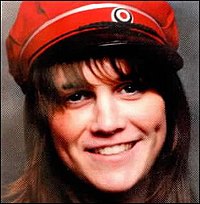 Kaja Ballo | |
| Date | March 28, 2008 |
|---|---|
| Location | Nice, France |
Kaja Bordevich Ballo (1988 – March 28, 2008) was a Norwegian university student who took her own life in Nice, France, on March 28, 2008, shortly after taking an Oxford Capacity Analysis (OCA), a personality test administered by the Church of Scientology, earlier the same day. Family and friends state that Ballo was happy prior to taking the OCA, and that her mood dramatically shifted after receiving the results; she jumped from the fourth floor of her dorm room hours later. In addition to a suicide note, Ballo's family found the OCA among her belongings. French police investigated connections between Scientology and Ballo's death, and interviewed two leaders of the Church of Scientology in France; prosecutors stated in December 2008 that they were unable to establish a causative link.
A Scientology representative in France asserted that the OCA was not created by the Church, and that it was not related to the suicide. Scientology's information chief in Norway, Matthias Fosse, stated that the OCA was not dangerous and that the organization did not bear any responsibility for the tragedy. Ballo's father, Norwegian MP Olav Gunnar Ballo (SV), retained a lawyer to investigate his daughter's death, and her family considered filing a lawsuit against Scientology. 500 people attended Ballo's funeral on April 11, 2008, at Grefsen Church in Oslo.
The incident received significant media coverage in Norway, for which some outlets faced criticism.[1] Norwegian MP Inga Marte Thorkildsen (SV) indicated that she thought Scientology had a role in Ballo's suicide. Psychologist Rudy Myrvang told Aftenposten that the OCA was designed to break down an individual; he characterized the test as a form of recruitment tool for the organization. Scientology critic Andreas Heldal-Lund stated parents of those involved in Scientology contacted him with similar concerns. The Norwegian Psychological Association warned individuals against taking such types of personality tests.
Ballo's father wrote a book about his daughter's death, and refrained from press interviews until the book was published in 2009. Titled Kaja: 1988–2008, the book became a bestseller in Norway. The author stated he wrote the book as an expository method to both process his grief, inform his family about the controversy, and educate the public about suicide.
